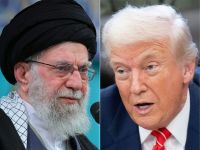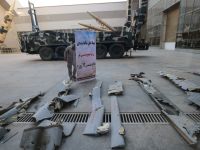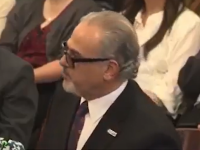UAE Minister of Foreign Trade (MoFT) Sheikha Lubna Al Qasimi led a huge delegation from the government and private sectors on the opening day of the 2nd Arab-Indian Partnership Conference running from February 8 to 9, 2010. The conference launch was also attended by ministers of commerce and economy from India and Arab Countries, the Deputy Secretary of the Arab League, and representatives from Arab trade and investment institutions.
The delegates escorting Sheikha Lubna included Mohamed Sultan Abdulla Al-Owais, Ambassador of the UAE in India; MoFT General Manager Abdullah Ahmad Al-Salih; Saeed Khammas, Vice President of the Federation of UAE Chambers of Commerce & Industry; Abdullah Sultan, Secretary General of the Federation; and Miss Hala Lutah, Director of MoFT’s Government Communication Relations Department.
There were also around 40 other representatives from MoFT; the Ministry of Economy; the Central Bank of the Emirates; the Departments of Economic Development of Abu Dhabi And Dubai; the Abu Dhabi Tourism Authority; the Abu Dhabi Exhibitions Company; the Authority of Free Zones in Sharjah, Ras Al-Khaima and Fujeira; the Ras Al-Khaima Investment Authority; the Union of Trade and Industry Chambers in the UAE; the Sharjah Chamber of Commerce & Industry; as well as several private national companies and foreign banks and companies based in the UAE.
In a speech delivered at the beginning of the Conference, she spoke of the resilience of the UAE economy, particularly against the global crisis, as well as the numerous business and investment opportunities offered by the country especially in non-oil sectors. She explained that these would create broader horizons for future collaboration between the UAE and India as well as Arab-Indian cooperation in various fields.
She explained how Indian and international companies can capitalize on the UAE’s exceptional geographic location close to top European and Asian markets; highly-competitive Free Zones; world-class services; the possibility of transferring capital and profit at a 100 per cent rate; and highly productive industries and non-petroleum sectors which contribute more than 63 per cent of national GDP. In addition, she noted the availability and ease of access to raw materials; low-cost energy sources; business-friendly regulatory reforms; zero-taxes on profits and personal income; the country’s emergence as an R&D and alternative energy hub; political stability; and an integrated infrastructure as among the features which make for one of the most competitive business environments in the world.
With regards to relations with India, she pointed out that the UAE is committed to enhancing commercial partnerships between the two nations as reflected by her promotional tour across four key industrial cities in India. She noted that Indian investments into the UAE in 2007 were valued at around USD 2.5 billion, representing 7 per cent of total foreign direct investments during the year. On the other hand, she noted that the UAE ranks first among India’s commercial partners and 8th among its top 10 foreign investors. The Emirates’ non-petroleum trade with India surpassed USD 32 billion in 2008, representing around 15 per cent of the UAE’s total foreign trade for the UAE.
Sheikha Lubna added that there are more than 105 Indian companies registered in the UAE, many working within the country’s various Free Zones. She said that products such as pearls, precious and semi-precious stones, precious and base metals, false jewelry and coins made up more than two thirds of total exports, 7.85 per cent of non-petroleum exports and 93 per cent of total re-exports. She called for closer collaboration between the two countries’ private and government sectors in adopting enhanced investment policies and developing joint investment programs and projects.
Her Excellency lauded the improving relations among Arab countries and India and particularly noted mutually beneficial achievements in tourism, transportation and general commerce. She highlighted the fact that India is exploring potential energy and infrastructure partnerships with Arab countries and Gulf states in particular in pursuit of its annual economic targets through the next 20 years.
The first day of the Conference sessions tackled joint investment opportunities worth approximately USD 21 billion, covering activities in infrastructure, energy, small and medium industries, social infrastructure, and information and communications technology.
Dr. Shashi Tharoor, Indian Minister of State for External Affairs, affirmed the historic bonds with Arab countries and the importance of their cooperation. He said that the global financial crisis presents a huge opportunity to strengthen ties and that the Arab World’s status as the top provider of energy resources makes it a vital ally. He added that the improving conditions of Indian workers in Arab countries bode well for enhanced collaboration.
For his part, Mr. Anand Sharma, Indian Trade and Industry Minister, commended the exceptional economic and commercial ties between the UAE and India and said that they can serve as role models for excellent Arab-India relations. He outlined the main challenges posed by globalization, called for greater unity between Arab countries and India, and urged all parties to learn from their shared histories. He finally referred to potential areas of cooperation especially in technology and energy, and noted that commercial exchange was at around USD 140 billion.
Mr. Ahmad Ben Helli, Deputy Secretary General of the Arab League, confirmed the robustness of Arab-Indian relationships. He likewise encouraged greater cooperation in fields such as energy, scientific research, human resources, and environment.
In a speech delivered on behalf of the President of the Union of Arab Trade and Industry
Chambers, Saeed Khammas, Vice President of the Union, emphasized the importance of commercial exchange between Arab countries and India which he said reach an estimated USD 100 billion in 2009, with the Arab share in India’s foreign trade hitting around 21 per cent. Mr. Khammas pointed out that Arab countries are committed to engaging in joint projects in vital economic areas such as petroleum, energy, food safety, infrastructure, technology, electronic data processing, communications, health services and education with India. He urged India’s economic entities to learn how to benefit from investment opportunities available in Arab countries, especially as the region has proven its ability to overcome the challenges posed by the global downturn.







